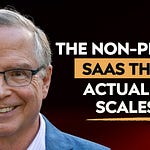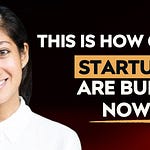The startup world moves fast — but according to Jay Levy, Co-Founder and Partner at Zelkova Ventures, the key to building a winning company isn’t about chasing hype. It’s about people, discipline, and adapting to new realities like AI.
With more than 17 years of experience investing in over 120 companies — including Help Scout, Klout, and Crimson Hexagon — Jay has seen founders win big and flame out. In this conversation, he shares hard-won lessons on identifying great founders, avoiding common pitfalls, and navigating the rapidly evolving venture capital landscape.
From Building Websites in High School to Backing 120+ Startups
Jay’s journey began as a teenager in South Florida, building websites for local businesses. He went on to work with early dot-com startups like Uconnections, where he experienced firsthand the highs of rapid growth — and the crash that follows when scaling outpaces sustainability.
After a stint at Morgan Stanley, Jay co-founded Zelkova Ventures with a mission to back transformative SaaS companies. Over the years, the firm has evolved its thesis but kept one principle constant: invest in great people first.
What Makes a Founder Worth Betting On
Jay’s approach is refreshingly people-centric:
97% people, 2% market, 1% product – while tongue-in-cheek, this ratio highlights his belief that founder quality matters above all else.
Self-awareness is non-negotiable — the best founders know their strengths and weaknesses and hire accordingly.
Customer-first thinking is critical — the top founders actively seek out feedback, especially criticism, and adapt quickly.
A major red flag? An inflated “ego-to-ability ratio” — the higher it is, the less likely Jay is to invest.
The Metrics That Matter at the Early Stage
Forget vanity metrics like early-stage NPS or CAC — Jay focuses on qualitative customer feedback, lead quality, conversion rates, and product usage. In his view, dependency and stickiness of the product often matter more than raw growth numbers.
How AI is Reshaping Venture Capital
AI, Jay argues, is changing the economics of building a startup. Where once it took $1.5–$2M to build a viable SaaS product, AI tools can now produce a “pretty good viable product” for a fraction of that cost. This shift could:
Shorten the path to product-market fit
Reduce reliance on early-stage venture capital
Force VCs to rethink their value proposition
Zelkova is especially interested in founders who use AI to run their business more efficiently, not just as a product feature.
Remote Work, Boards, and Founder-Investor Fit
Jay prefers in-person teams for the culture and learning benefits, but he’s pragmatic — remote can work with intentional effort. On governance, he favors board observer seats over full board roles to provide value without unnecessary friction.
He also advises founders to choose investors as carefully as investors choose them — the wrong investor can be more damaging than no investor at all.
The Takeaway
In a world where technology and markets shift faster than ever, Jay Levy’s perspective is a reminder that great companies are built by great people. Whether AI accelerates product development or changes the venture model entirely, the fundamentals remain:
Invest in people, not just ideas
Stay close to customers
Be self-aware enough to adapt quickly
For founders, that means focusing on building a business that’s not just fundable — but durable. For investors, it’s about resisting the hype and sticking to disciplined, people-first principles.
👂🎧 Watch, listen, and follow on your favorite platform: https://tr.ee/S2ayrbx_fL
🙏 Join the conversation on your favorite social network: https://linktr.ee/theignitepodcast
Chapters:
00:01 – Welcome & Jay Levy Introduction
00:44 – Early days: building websites in high school
02:02 – Recurring revenue lessons from hosting clients
02:30 – First big project: city youth website gains national attention
03:55 – Joining Uconnections during the dot-com boom
04:48 – Startup collapse and lessons from scaling too fast
06:14 – Transition to Morgan Stanley and corporate reality check
07:15 – Leaving Wall Street for entrepreneurship
08:14 – Early days of New York’s tech scene
09:08 – Founding Zelkova Ventures and initial clean tech focus
10:46 – Lessons from Uconnections and the importance of pacing growth
12:43 – Finding a sustainable revenue model early
14:23 – How Zelkova’s investment thesis evolved
16:45 – The importance of valuation discipline
18:43 – Easy “no” deals and founder self-awareness
20:24 – Assessing the “ego-to-ability” ratio
21:23 – The three types of investors founders meet
23:37 – Avoiding investor-founder misalignment
24:47 – Zelkova’s check size and barbell investment approach
26:29 – Reserve strategy and follow-on investments
27:24 – Board observer seats vs. board member roles
29:15 – Managing multiple board observer roles
30:54 – How AI is reshaping product development costs
33:12 – From MVP to “Pretty Good Viable Product” with AI
34:41 – Building companies more efficiently with AI tools
36:10 – Could AI reduce the need for early-stage VC?
38:36 – Platforms, scalability, and AI’s “last mile” problem
40:29 – The shift toward AI-powered business operations
41:42 – Early-stage investment focus areas today
46:26 – In-person vs. remote-first startups
48:13 – Patterns of the best founders Jay has backed
50:58 – Where promising founders fall short
52:38 – The early-stage metrics that actually matter
54:58 – Why CAC and early-stage NPS are overrated
56:11 – Underappreciated metrics: qualitative customer feedback
57:57 – A company Jay passed on but still thinks about
59:11 – When valuation discipline pays off (and when it doesn’t)
01:01:13 – Being both a GP and LP in the venture world
01:03:00 – Later-stage investments for faster liquidity
01:05:41 – Thoughts on SAFEs, convertible notes, and doing it right
01:09:00 – Closing thoughts and where to connect with Jay Levy










